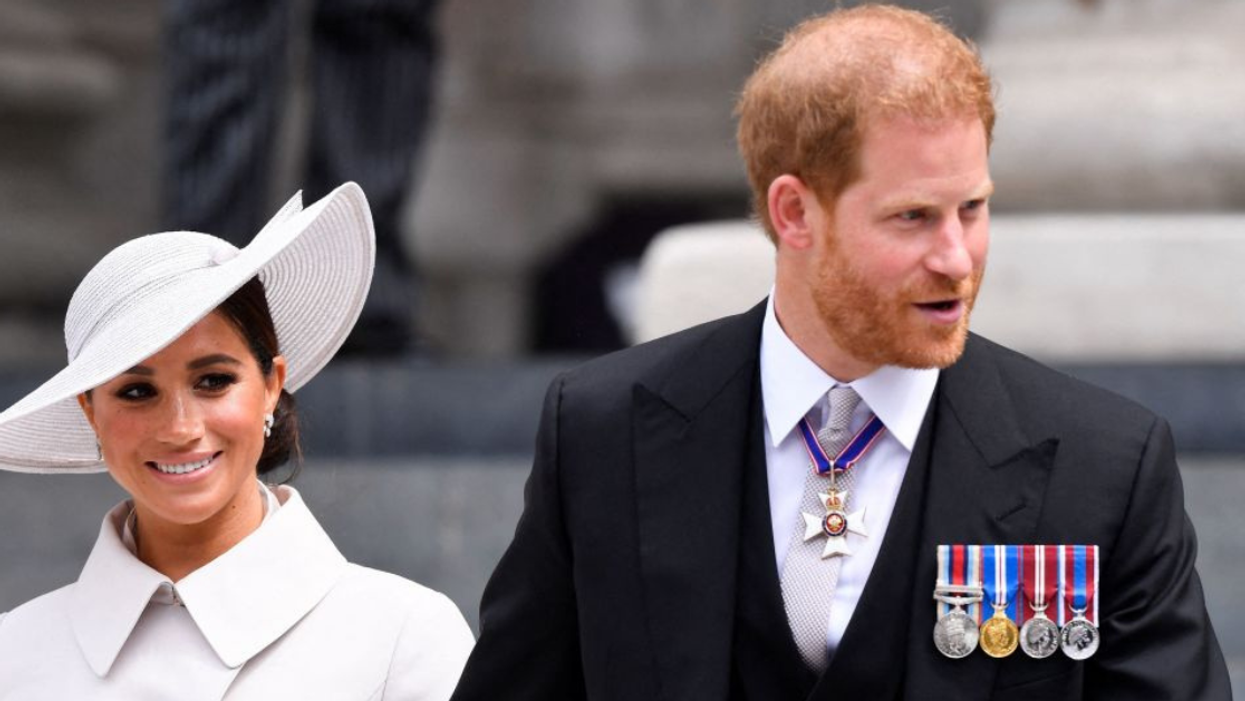The romance between Prince Harry and Meghan Markle, the Duke and Duchess of Sussex, has long been the subject of heated debate in the United Kingdom, especially since the two decided to step down as senior members of the royal family and move to Markle's native Southern California.
Markle—who spoke openly about the racism and microaggressions she experienced as a mixed-race British royal during a much publicized interview with Oprah Winfrey in March 2021—says she wasn't "treated as a Black woman" until she started dating the prince.
Markle made the remark during the second episode of her Spotify podcast Archetypes, which featured singer Mariah Carey as her guest.
The two women—both biracial and often labeled "divas" for public perceptions about their behavior—had a conversation titled "The Duality of Diva" in which they examined the term and discussed their lived experiences.
Carey—who for years dealt with attacks from members of the general public and the mainstream press while living with bipolar disorder—said she moved over a dozen times during her youth and never felt like she "fit in anywhere at all" despite living in both Black and White neighborhoods.
Markle praised Carey, telling her she was thrilled when Carey "came onto the scene" in the early 1990s because "representation matters so much" and she finally found someone who "kind of looks like me."
She then spoke at length about her experience growing up bi-racial, alluding to the experiences of Academy Award-winning actress Halle Berry, another trailblazing biracial star in her own right:
"I had read this article about Halle Berry, and they were asking her how she felt being treated as a mixed-race woman in the world. And her response was her saying, 'Well, your experience through the world is how people view you'."
"So she said because she was darker in color, she was being treated as a Black woman, not as a mixed woman."
"And I think for us, it's very different because we're light-skinned. You're not treated as a Black woman. You're not treated as a White woman. You sort of fit in between."
"I mean, if there's any time in my life that it's been more focused on my race, it's only once I started dating my husband. Then I started to understand what it was like to be treated like a Black woman."
"Because up until then, I had been treated like a mixed woman. And things really shifted."
Carey concurred, saying feeling forced to choose between identifying as either Black or White was an "interesting thing" because "people want you to choose" even though it "should be okay" to identify as mixed-race.
Many related to Markle's comments and praised her for speaking out.
Markle has spoken candidly about the emotional distress she felt living in the United Kingdom and interacting with members of the royal family.
During her interview with Winfrey, she revealed she'd had suicidal thoughts. She also said her in-laws had speculated on the skin color of her then-unborn son Archie and balked at offering her and her husband a security detail.
Markle has been lauded for speaking out at a time when both Britian and the United States are reckoning with their long respective histories of racism and White supremacy while contributing to conversations about racial equity and mental health.














 @DuncanCecil/X
@DuncanCecil/X @@realDonaldTrump/Truth Social
@@realDonaldTrump/Truth Social @89toothdoc/X
@89toothdoc/X @xray_media/X
@xray_media/X @CHRISTI12512382/X
@CHRISTI12512382/X
 @sza/Instagram
@sza/Instagram @laylanelli/Instagram
@laylanelli/Instagram @itssharisma/Instagram
@itssharisma/Instagram @k8ydid99/Instagram
@k8ydid99/Instagram @8thhousepath/Instagram
@8thhousepath/Instagram @solflwers/Instagram
@solflwers/Instagram @msrosemarienyc/Instagram
@msrosemarienyc/Instagram @afropuff1/Instagram
@afropuff1/Instagram @jamelahjaye/Instagram
@jamelahjaye/Instagram @razmatazmazzz/Instagram
@razmatazmazzz/Instagram @sinead_catherine_/Instagram
@sinead_catherine_/Instagram @popscxii/Instagram
@popscxii/Instagram
